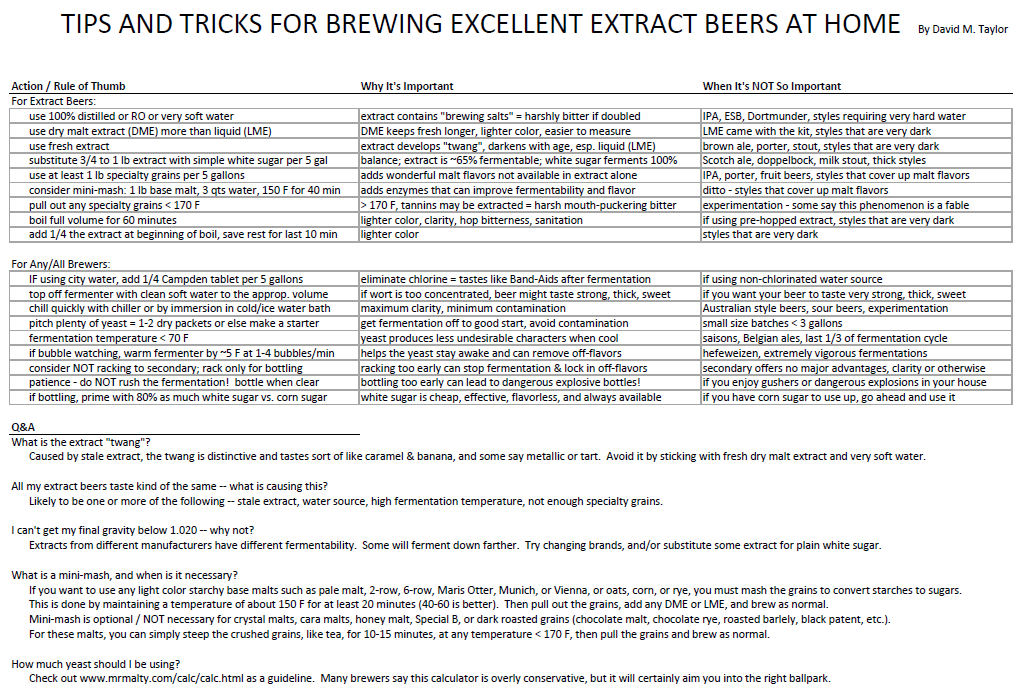Tall_Yotie
Well-Known Member
Hey folks. So I've been brewing for almost 20 years, and have been all grain except when I started. I now have a young kid so don't have those long hours to do the whole mash thing. So looking to do extract.
I recall that with extract I couldn't get as low a FG as with All Grain. Is that still a thing? Is there a technique change I need to make?
Extract flavor. It seems almost every beer done with extract you can tell. Always a bit caramelly. Is that due to scorching from not stirring enough, or do I go with a lighter extract than I need to avoid said flavor?
Thanks for any thoughts!
I recall that with extract I couldn't get as low a FG as with All Grain. Is that still a thing? Is there a technique change I need to make?
Extract flavor. It seems almost every beer done with extract you can tell. Always a bit caramelly. Is that due to scorching from not stirring enough, or do I go with a lighter extract than I need to avoid said flavor?
Thanks for any thoughts!









































![Craft A Brew - Safale S-04 Dry Yeast - Fermentis - English Ale Dry Yeast - For English and American Ales and Hard Apple Ciders - Ingredients for Home Brewing - Beer Making Supplies - [1 Pack]](https://m.media-amazon.com/images/I/41fVGNh6JfL._SL500_.jpg)
















